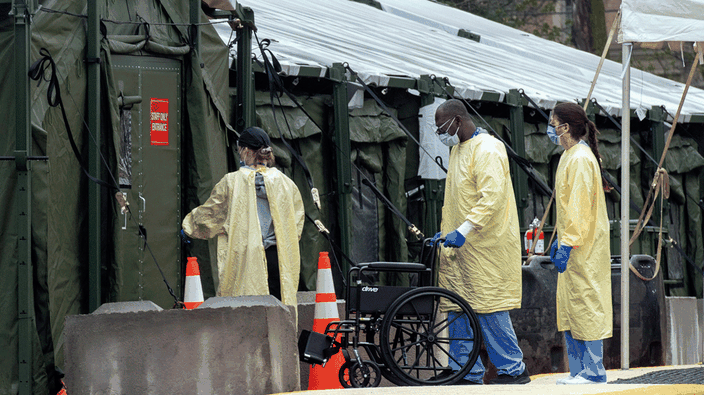the “secondary burden” of long covid is taking a heavy toll on families, according to a new study that says a support system is desperately needed to deal with the frightening fallout.the study,
published in bmj open, found the quality of family life has been “severely affected” in households where covid-19 never really went away. more than 700 people who recovered from the virus — as well as their partners and close relatives — opened up to researchers about their ongoing struggles.“everything has changed,”
said billie-jo redman, a 27-year-old mother from essex who tested positive for the virus on jan. 9. “my life feels like it’s over. i used to go on adventures with my son roman — now i have days where i can’t even get him to school.”redman said she felt fine 10 days after contracting covid-19 but by the end of the january, she could barely get out bed. her symptoms — brain fog, daily bouts of pins and needles and a spontaneously accelerating heart rate — have mystified her doctors and strained her relationship with her son. “the hospital just doesn’t know what to do with me,” she said. “they can see my heart rate is way too high but they don’t know why.”roughly one in five people experience enduring symptoms of long covid — including fatigue, breathlessness, anxiety, heart palpitations or brain fog — five weeks after being infected by the virus, according to the u.k.’s office for national statistics. while the rate decreases to one in seven after 12 weeks, during a four-week period earlier this year, over 1.1 million people in the u.k. were believed to be affected by the phenomenon.the unending ordeal is more than most families can bear, said rubina shah, the lead author of the study and a phd student at cardiff university’s school of medicine in the uk.“we have all seen the devastating impact long covid can have on survivors but we have heard very little about how it can affect the lives of their nearest and dearest,” she said. “our study reveals a domino effect from the covid patient themselves through to all those closest to them, affecting everything from how worried and frustrated they feel to their ability to enjoy family activities or for partners the impact on their relationship and sex life.”
researchers had 735 covid-19 survivors, 571 partners and 164 family members complete an online survey last summer related to their experiences with the virus. the biggest issue for families was related to anxiety with 94 per cent of people “feeling worried.” respondents said the symptoms of long covid impacted family activities (83 per cent), feelings of frustration (82 per cent), feeling sad (78 per cent), sleep (69 per cent) and their sex life (68 per cent). two-thirds said it influenced holiday plans, and more than half reported an increase in family spending.
the study also revealed differences across genders, with women more likely to feel sad and struggle to sleep well. men reported a greater impact on their sex lives than women. while more research is required to probe the persistence of these feelings and whether there are family differences across ethnic groups, researchers said lawmakers should be devising a range of support and counselling services with these families in mind.“the impact of covid can be profound and long lasting; there needs to be a holistic support system that is sensitive to the needs of both survivors and their families to help ease this burden,” shah said. “it is so important that we understand the needs of those closest to survivors to ensure the overall wellbeing of families.”
dave yasvinski is a writer with healthing.ca
 3 minute read
3 minute read









